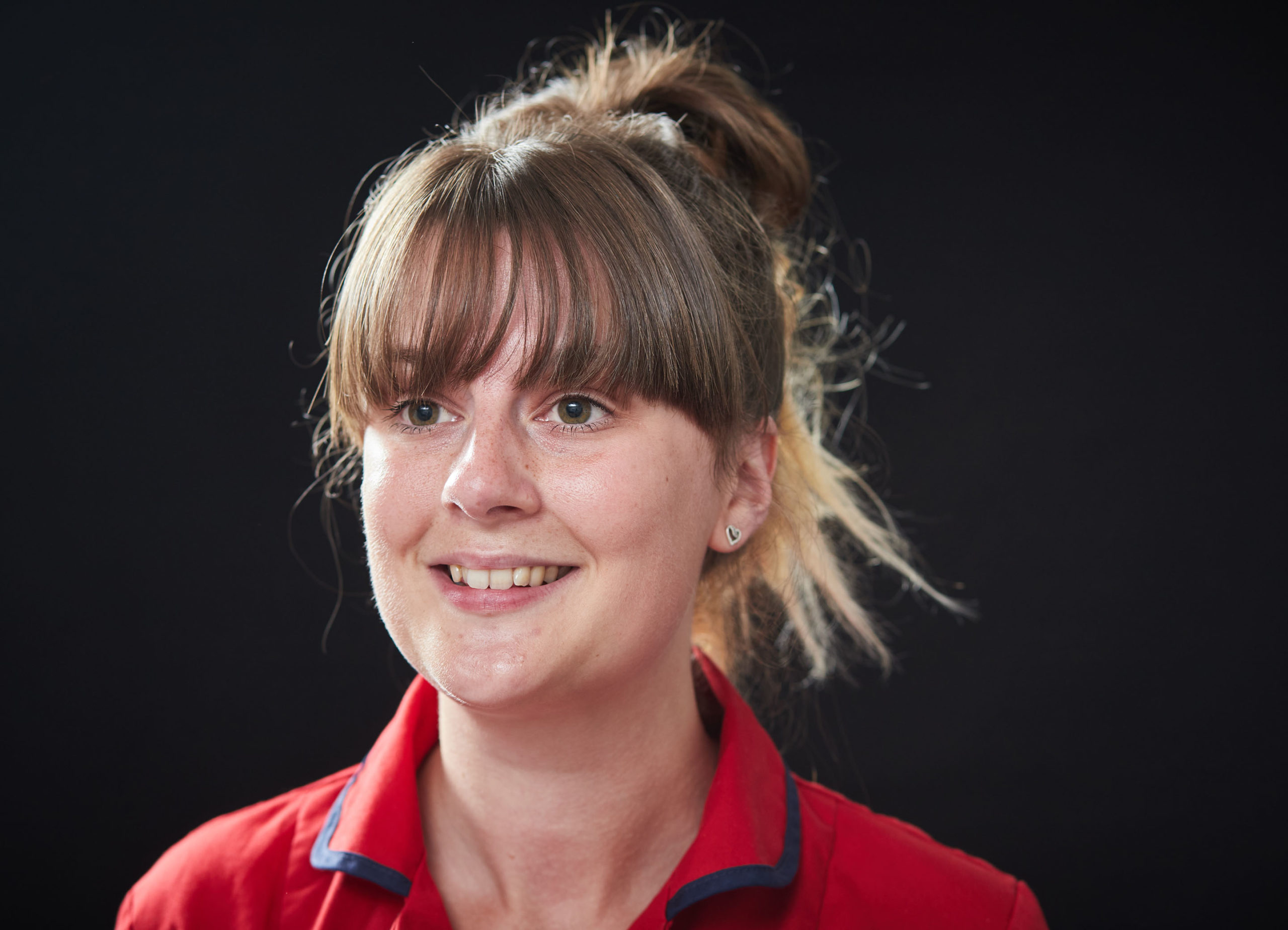
Hollie, Research Practitioner
The Queen Elizabeth Hospital, King’s Lynn
How did you begin your career working in Health and Social Care?
I began as a biology graduate not sure what to do afterwards. My first Health and Social Care job was as a Bowel Cancer Screening Officer at the Queens Medical Centre in Nottingham. It was here that I worked both in a laboratory setting and also on the helpline talking to patients. I enjoyed both, and decided I would like to help patients face to face rather than on the telephone. It was then I became a Tissue Coordinator for the Nottingham BioBank working at both Queens Medical Centre and Nottingham City Hospital. I would see patients on the wards and also work in the histopathology laboratory. This is where my passion for research began, as I realised research in a Health and Social Care setting includes the two things I enjoy most – laboratory work and helping patients. It was the perfect mix!
What are your day-to-day responsibilities in your job role?
In my current role as a Research Practitioner I set up and co-ordinate many different clinical trials. On a daily basis I screen for potential participants. This would include attending ward rounds, discussing potential patients with consultants and looking through medical notes to ensure they are eligible. I also receive informed consent from eligible participants and their families, including paediatric patients and patients who are in critical care. I collect data for participants that have enrolled onto clinical trials and upload these onto the clinical trial databases. This also includes ensuring the safety of patients and appropriate safety reporting to clinical trials, such as SAE’s. I also work in the laboratory processing laboratory samples and keep an eye out for any new interesting clinical trials that I can set up.
What skills have you developed during your career? E.g. further training, personal development, secondment opportunities?
Throughout my career I have definitely developed my innovation and problem solving skills. After working in the NHS for 4 years I worked for the blood cancer charity Antony Nolan as a Cord Blood Scientist. This was where my passion for cord blood and tissue research began and after a year I was promoted to Research Supervisor. I would coordinate projects and clinical trials by working closely with universities, charities and hospitals. During my time at Anthony Nolan I went on a Supervisor workshop, which helped with my conflict resolution skills and time management skills. I also attended conferences in London that specialised in innovation and this is where I met many different people from different companies. This is a great way of finding out job opportunities and exploring what you are passionate about.
I have also developed my communication skills. As a Research Practitioner I meet many different patients who have different mental capacity. I attended a virtual informed consent course, which explored the Mental Capacity Act, how to assess this and also tips on how to approach different patients. I also completed an online paediatric consent course, which has enabled me to develop my communication skills with children and branch out into this area of research.
What do you most enjoy about your current job role?
I enjoy the variety as every day is different – this is mainly due to the many people I meet. I also enjoy the freedom I have to search and investigate which clinical trials would be suitable for our hospital and working out if we can deliver it successfully.
What has been the biggest learning opportunity / challenge during your Health / Social Care career?
The biggest challenge for me was working out what I wanted to do with my degree. I also did not know what area of research I wanted to work in, and if I would rather be more clinical than working in a laboratory. I had to do a bit of research myself into what I wanted to do. I realised that meeting different people helped me decide what I wanted to do – this can happen through conferences, workshops, social media and volunteering.
What support have you been given throughout your career?
I have had a lot of support from colleagues and different team leaders from both the NHS and Anthony Nolan. You do need to make sure you ask if you can do some additional training, as there may be certain additional training programmes available through your employer.
What excites you about the role that you do?
I love that I work on clinical trials as they make a difference – whether they find out that a certain drug works or not as both outcomes are just as important! It is so interesting learning about all the new medical devices, drugs and care pathways being developed for patients to ensure they have the best care available. I also love meeting new people, learning from the clinical trial teams who create the trials and also the ability to promote the importance of research.
What advice would you give to people applying for a course / job within Health and Social Care?
I would advise lots of research into what jobs are out there. Find out what you are interested in and give it a go – try and get experience as a volunteer as this might help you decide where you want to concentrate your efforts. Most importantly talk to people in different professions – this will help you make an educated guess on what path you want to go down. Also try and attend virtual conferences and webinars – some of these are free. Reading journals will also help you decide what you are passionate about and might help you work out what job best suits your interests.

